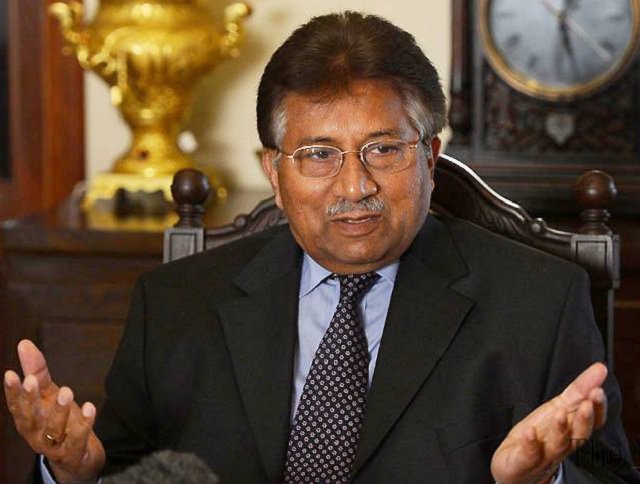Pakistan’s Supreme Court has issued a notice to former military dictator Pervez Musharraf on a petition seeking recovery of huge losses the country incurred after the promulgation of a controversial law in 2007 which gave amnesty to several politicians in all court cases.
Musharraf had signed the National Reconciliation Ordinance (NRO), paving the way for a power-sharing deal with former prime minister Benazir Bhutto.
The ordinance gave amnesty to Bhutto and other political leaders — except then exiled former premier Nawaz Sharif — in all court cases against them.
Through the NRO which was later declared illegal by the court, several politicians and others were pardoned and their cases quashed.
The Express Tribune reported that the notice will be published in two newspapers circulated in the UAE where Musharraf, 74, has been residing for the last two years.
Nominating Musharraf, former president Asif Ali Zardari and former attorney general Malik Abdul Qayyum as respondents, petitioner Feroz Shah Gilani had requested the court to order recovery of “huge amounts of public money” misappropriated and wasted by them through unlawful means “already on record in different judgements of the Supreme Court and high court”.
He had contended that Musharraf subverted the Constitution by declaring emergency followed by the promulgation of the NRO, through which criminal and corruption cases against politicians, including Zardari, were “arbitrarily withdrawn”, causing huge financial losses to the national exchequer.
“Since the Supreme Court in its landmark judgement of December 16, 2009 has declared the NRO ‘void ab initio’, the respondents are liable to compensate the losses and the damage suffered by the exchequer of debt-ridden Pakistan, including the loss of USD 60 million stashed in Swiss banks allegedly by Zardari,” the petitioner said.
He had said Malik Qayyum had written a letter to the Swiss attorney general to withdraw criminal and civil proceedings against Zardari in Geneva, but the Supreme Court in its 2009 judgement held that Qayyum had written the letter in his personal capacity, against the Rules of Business, 1973.
“The actions of Musharraf and Qayyum by promulgating the NRO caused huge losses amounting to billions of rupees to debt-ridden Pakistan. Both wilfully violated the oath of office to the detriment of the country in violation of the rule of the law,” the petitioner alleged.
On Tuesday, counsel for Zardari Farooq H Naek requested the Supreme Court’s three-judge bench headed by Chief Justice Saqib Nisar to give him some time for filing a reply as he had received notice of the case a day earlier.
The federal government while submitting a reply stated that the apex court’s December 16, 2009 judgement has already been complied with. The court later granted 10-day time to Naek for filing the reply.
Qayyum has already submitted the reply, in which he has defended the letter to Swiss authorities for withdrawing of Pakistan’s plea to become party in the case against Zardari.
As an independent media platform, we do not take advertisements from governments and corporate houses. It is you, our readers, who have supported us on our journey to do honest and unbiased journalism. Please contribute, so that we can continue to do the same in future.

